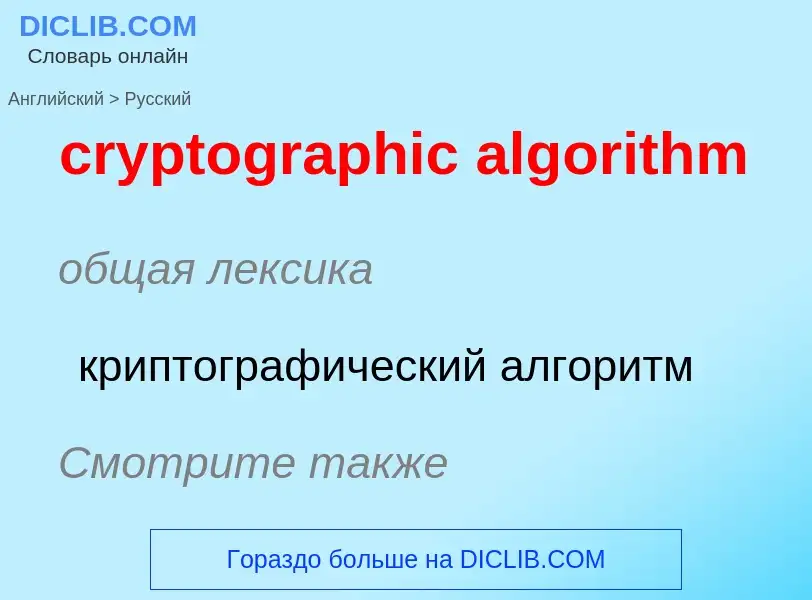Vertaling en analyse van woorden door kunstmatige intelligentie ChatGPT
Op deze pagina kunt u een gedetailleerde analyse krijgen van een woord of zin, geproduceerd met behulp van de beste kunstmatige intelligentietechnologie tot nu toe:
- hoe het woord wordt gebruikt
- gebruiksfrequentie
- het wordt vaker gebruikt in mondelinge of schriftelijke toespraken
- opties voor woordvertaling
- Gebruiksvoorbeelden (meerdere zinnen met vertaling)
- etymologie
cryptographic algorithm - vertaling naar russisch
Definitie
Wikipedia
In cryptography, encryption is the process of encoding information. This process converts the original representation of the information, known as plaintext, into an alternative form known as ciphertext. Ideally, only authorized parties can decipher a ciphertext back to plaintext and access the original information. Encryption does not itself prevent interference but denies the intelligible content to a would-be interceptor.
For technical reasons, an encryption scheme usually uses a pseudo-random encryption key generated by an algorithm. It is possible to decrypt the message without possessing the key but, for a well-designed encryption scheme, considerable computational resources and skills are required. An authorized recipient can easily decrypt the message with the key provided by the originator to recipients but not to unauthorized users.
Historically, various forms of encryption have been used to aid in cryptography. Early encryption techniques were often used in military messaging. Since then, new techniques have emerged and become commonplace in all areas of modern computing. Modern encryption schemes use the concepts of public-key and symmetric-key. Modern encryption techniques ensure security because modern computers are inefficient at cracking the encryption.

